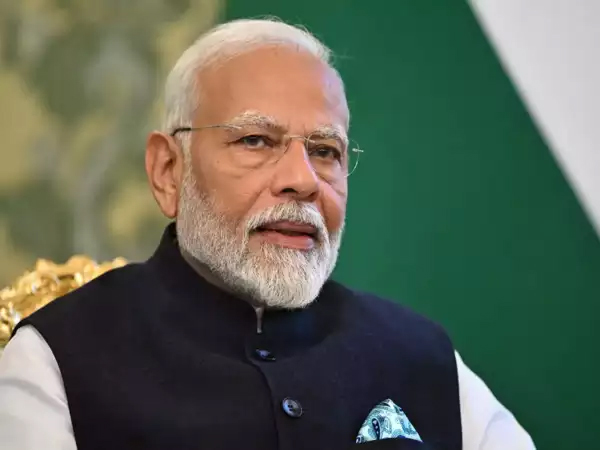| Train connectivity will drive J&K’s economic progress, prosperity: PM Modi | | Inaugurates new Jammu Railway Division, highlights significance of infrastructure | |  Early Times Report Early Times Report
Jammu, Jan 6: Prime Minister Narendra Modi hailed Jammu and Kashmir’s transformative railway projects as engineering marvels poised to drive economic growth and connectivity.
Speaking on Monday via video conferencing during the inauguration and foundation-laying ceremony of various railway projects, including the new Jammu Railway Division, the Prime Minister highlighted the significance of the region’s advancements in rail infrastructure.
Modi spotlighted the Udhampur-Srinagar-Baramulla rail line, a project gaining national attention for its ambitious scope and transformative potential. He emphasized that the completion of the Chenab Bridge—the world’s highest railway arch bridge—will not only connect Jammu and Kashmir with the rest of India but also facilitate convenience for the people of Leh-Ladakh.
The Prime Minister also praised the Anji Khad Bridge, India’s first cable-stayed railway bridge, as a groundbreaking addition to the region’s connectivity infrastructure.
“The Chenab Bridge and Anji Khad Bridge stand as unparalleled examples of engineering excellence, driving economic progress and promoting prosperity in Jammu and Kashmir,” Modi remarked.
He extended his greetings on the occasion of Shri Guru Gobind Singh Ji’s Jayanti, noting that the Guru’s teachings inspire the vision of a strong and prosperous nation.
Highlighting the socio-economic benefits, the Prime Minister emphasized that these projects will enhance tourism and drive overall development in Jammu and Kashmir. He pointed out that India’s connectivity initiatives have been accelerating, with the country’s metro rail network surpassing 1,000 kilometers in 2025. Modi cited the recent inauguration of the Namo Bharat train in Delhi-N “Over the last decade, millions of young people have secured permanent government jobs in the railway sector. Additionally, the demand for raw materials in factories producing new train coaches has created jobs in other sectors.”
Reflecting on the broader national vision, Modi stressed that projects in Jammu and Kashmir, Odisha, and Telangana signify a major leap in connectivity across India’s north, east, and south. “The mantra of ‘Sabka Saath, Sabka Vikas’ is turning the vision of a developed India into reality,” he affirmed, congratulating the people of Jammu and Kashmir on these transformative developments.
The Prime Minister underlined the modernization of India’s railway sector, noting that initiatives like the Dedicated Freight Corridor are reducing pressure on regular tracks while paving the way for high-speed trains. He also highlighted the ‘Made in India’ movement within the railways, which includes developing modern coaches, redeveloping stations, installing solar panels, and introducing ‘One Station, One Product’ stalls at railway stations.
Modi emphasized the employment opportunities generated by these initiatives, stating, “Over the last decade, millions of young people have secured permanent government jobs in the railway sector. Additionally, the demand for raw materials in factories producing new train coaches has created jobs in other sectors.”
The Prime Minister also announced the establishment of Gati-Shakti University to harness specialized railway-related skills. As the railway network expands, new divisions and headquarters are being set up to benefit regions like Jammu, Kashmir, Himachal Pradesh, Punjab, and Leh-Ladakh.
Modi concluded by reaffirming his government’s commitment to advancing connectivity in Jammu and Kashmir, positioning the region as a key player in India’s journey toward economic progress and development. |
|
